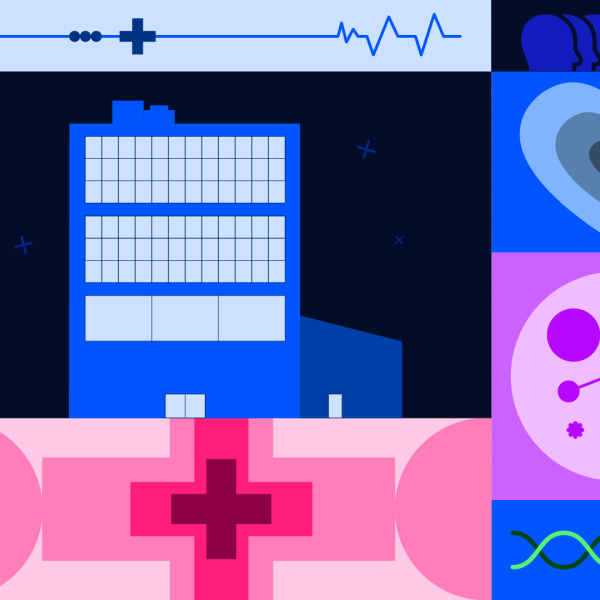This article on ADHD is written by Even’s resident Clinical Psychologist, Swathi J Bhat.
Attention Deficit Hyperactivity Disorder (ADHD) affects millions of adults worldwide. Whether you want information for yourself or a loved one, understanding its symptoms, diagnosis, and treatment helps you manage life with this condition. This article explains the key signs, diagnostic process, and treatment options for adults.
What is ADHD?
ADHD is a neurodevelopmental disorder that affects both children and adults. Persistent patterns of inattention, hyperactivity, and impulsivity define it. Doctors often diagnose it in childhood, but many adults remain undiagnosed until later in life.
It is a neurodevelopmental condition that has genetic and/or neurological underpinnings. While neurodivergence can cause issues like hyperfixation on topics of interest, experiencing sensory overload and stimulation, being disorganised and forgetful, it also has its strengths that should be celebrated.
Individuals with ADHD have higher energy levels and greater spontaneity, tendency for creativity and thinking outside the box, allowing them to come up with innovative strategies and solutions.
Key Facts:
- Prevalence: Around 5% of adults worldwide live with the disorder.
- Gender: Men receive a diagnosis more often than women, though many women remain undiagnosed.
- Neurodevelopmental: Differences in brain structure and function cause ADHD, not poor parenting or lack of discipline.
Symptoms of Adult ADHD
The condition shows up in three main areas: inattention, hyperactivity, and impulsivity. In adults, symptoms look different than in children.
1. Inattention
Adults often struggle to stay focused and organised. Signs include:
- Frequently losing things (keys, wallet, phone)
- Forgetting appointments or deadlines
- Struggling to focus during meetings or conversations
- Procrastinating or failing to complete tasks
2. Hyperactivity
Hyperactivity appears less obvious in adults but still affects them. They may:
- Struggle to sit still or feel the need to keep moving
- Feel “on edge” or easily overwhelmed
- Talk excessively or interrupt conversations
3. Impulsivity
Impulsivity can disrupt work and personal life. Signs include:
- Making quick decisions without considering consequences
- Interrupting others in conversations
- Spending impulsively or making poor financial choices
- Struggling to manage emotions, leading to outbursts
How Doctors Diagnose ADHD in Adults
Diagnosing ADHD in adults poses challenges because symptoms overlap with conditions like anxiety or depression. The diagnostic process usually includes:
- Clinical Interview: A healthcare provider reviews medical history, symptoms, and life impact.
- Self-Reports: Adults complete questionnaires or rating scales to assess behaviour.
- Neuropsychological Testing: Providers may test cognitive function and attention.
Doctors must rule out other causes, such as thyroid disorders or sleep apnea, before confirming a diagnosis.
Where hyperactivity and impulsivity may decline as years pass by, inattention remains persistent throughout their life. Therefore, in adulthood, the condition is referred to as ADD (attention deficit disorder) instead of ADHD.
Treatment Options for Adults
Although ADHD has no cure, treatment can reduce symptoms and improve quality of life. Doctors usually recommend a combination of medication, therapy, and lifestyle changes.
1. Medication
- Stimulants: Drugs like Adderall, Ritalin, and Vyvanse boost dopamine, improve focus, and reduce impulsivity.
- Non-Stimulants: Options such as Strattera work well for people who cannot take stimulants.
2. Therapy
Cognitive Behavioural Therapy (CBT) helps adults manage symptoms effectively. It teaches people to recognise and change negative thought patterns and equips them with tools for time management and organisation.
3. Lifestyle Changes
Adults can support treatment with daily habits:
- Exercise: Regular activity improves focus, lowers stress, and boosts mood.
- Diet: A balanced diet rich in omega-3s supports brain health.
- Sleep: A consistent schedule and calming routine improve rest.
- Mindfulness: Meditation and deep breathing reduce stress and sharpen focus.
Living with the Condition
Adults can live fulfilling lives with the right strategies and support.
Practical tips include:
- Create Structure: Use planners, calendars, and reminders to stay organised.
- Set Goals: Break tasks into smaller steps and prioritise with lists.
- Seek Support: Join support groups or connect with others who share similar experiences.
- Communicate: Share openly with family, friends, or coworkers to build understanding.
Common Myths
- Myth 1: ADHD only affects kids.
Fact: Many adults receive a diagnosis later in life. - Myth 2: People with ADHD are lazy.
Fact: This disorder affects brain function, not effort. - Myth 3: Medication cures ADHD.
Fact: Medication reduces symptoms but works best with therapy and lifestyle changes.
How to Seek Help
If you suspect you or someone you know has the condition, seek professional help. A qualified healthcare provider can guide you through diagnosis and suggest the best treatment plan. With the right support, people can manage symptoms successfully, and early intervention makes recovery easier.
Disclaimer: People with ADHD undergo different therapeutic and pharmacological treatments depending on their most severe symptom. Therefore, you should not rely on general advice available on the internet to diagnose or treat ADHD.
Conclusion
Adult ADHD is a challenging condition, but with proper diagnosis, treatment, and lifestyle adjustments, individuals can lead successful, fulfilling lives. Understanding the facts about ADHD, such as its symptoms, how it is diagnosed, and treatment options, is the first step in managing the disorder effectively. Whether through medication, therapy, or changes to daily habits, there is hope for those living with ADHD.
At Even Healthcare, we are committed to providing comprehensive care for individuals managing ADHD. Our in-house psychologists specialise in cognitive behavioural therapy (CBT) and other therapeutic approaches to address ADHD symptoms.
If you or someone you know is struggling with ADHD, contact Even Healthcare for support. Our team is ready to help you take the first step toward managing ADHD and improving your quality of life.
This article is intended to disseminate information about adult ADHD and does not amount to medical advice. If you are a member please speak to our psychologists for accurate diagnoses and investigations



